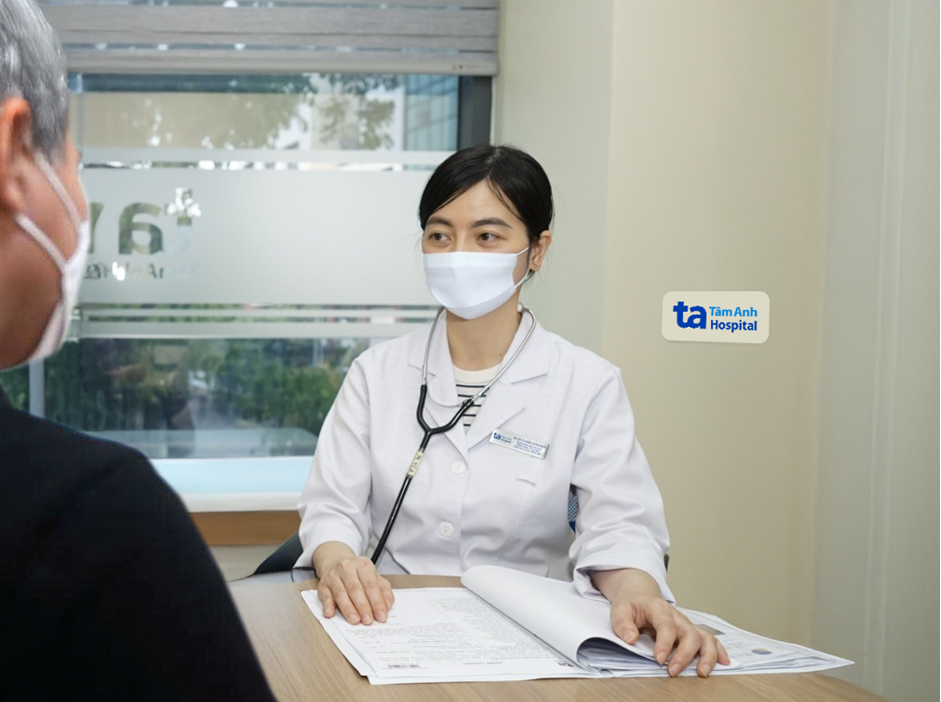Mr. Dang's blood test revealed a slightly elevated AFP (a tumor marker). An MRI scan detected 5 lesions, ranging from 5 mm to 15x10 mm, that absorbed the contrast agent. The tumors are localized in a small area of the liver and haven't invaded nearby blood vessels.
Dr. Le Thanh Quynh Ngan, Head of the Gastroenterology Department at Tam Anh General Hospital in Ho Chi Minh City, stated that Mr. Dang has grade 2 fatty liver disease and early-stage liver cancer, even before developing cirrhosis. "The combination of hepatitis B and fatty liver disease significantly increases the risk of liver cancer," Dr. Ngan said.
Currently, Mr. Dang is taking medication to suppress the hepatitis B virus and is receiving treatment for accompanying conditions like fatty liver disease, type 2 diabetes, and lipid metabolism disorder. He is also advised to maintain a healthy diet, lose weight, exercise, quit smoking, and abstain from alcohol. Doctors are considering transarterial chemoembolization (TACE) to cut off the blood supply to the tumors or a liver transplant. Dr. Ngan estimates Mr. Dang's post-treatment survival rate could reach 90%.
 |
Dr. Ngan examines Mr. Dang. Photo: Tam Anh General Hospital |
Dr. Ngan examines Mr. Dang. Photo: Tam Anh General Hospital
Hepatitis B is caused by the hepatitis B virus (HBV). Liver inflammation can lead to permanent scarring, liver cancer, and other complications. Dr. Ngan cited studies indicating that 56% of liver cancer cases are due to chronic hepatitis B. Most patients develop cancer after cirrhosis when AFP levels are very high, making detection easier.
An estimated 7.6 million Vietnamese are infected with the hepatitis B virus, but only over 1.6 million have been diagnosed, and about 45,000 are receiving treatment.
According to Globocan 2022, liver cancer is the second most common cancer in Vietnam, with 24,500 new cases, and the leading cause of cancer-related deaths. Early-stage liver cancer has a good prognosis with treatment. However, most patients are diagnosed in the late stages. Risk factors for liver cancer include chronic hepatitis, alcohol abuse, and fatty liver disease.
Dr. Ngan advises patients with chronic hepatitis or cirrhosis against using supplements, traditional medicine, or herbal remedies without consulting a doctor, as they can negatively impact liver and kidney function. Patients with cirrhosis should undergo cancer screening every 6 months. Patients with fatty liver disease who haven't developed cirrhosis but are older, obese, have type 2 diabetes, consume alcohol, or have persistently elevated liver enzymes should have an ultrasound and be screened for liver cancer every 6 months.
Prevent liver disease by avoiding alcohol, getting vaccinated against hepatitis, using condoms during sexual intercourse, and not sharing needles.
Bao Tram
*Name has been changed
| At 8 PM on 4/9, the Tam Anh General Hospital system will host an online consultation: "Chronic hepatitis - The culprit behind cirrhosis and liver cancer. Modern technology for high-efficiency diagnosis and treatment," broadcast on the VnExpress fanpage. The program will feature Dr. Le Thanh Quynh Ngan, Dr. Nguyen Huu Tri, and Dr. Thi Van Gung. Readers can submit questions here. |












